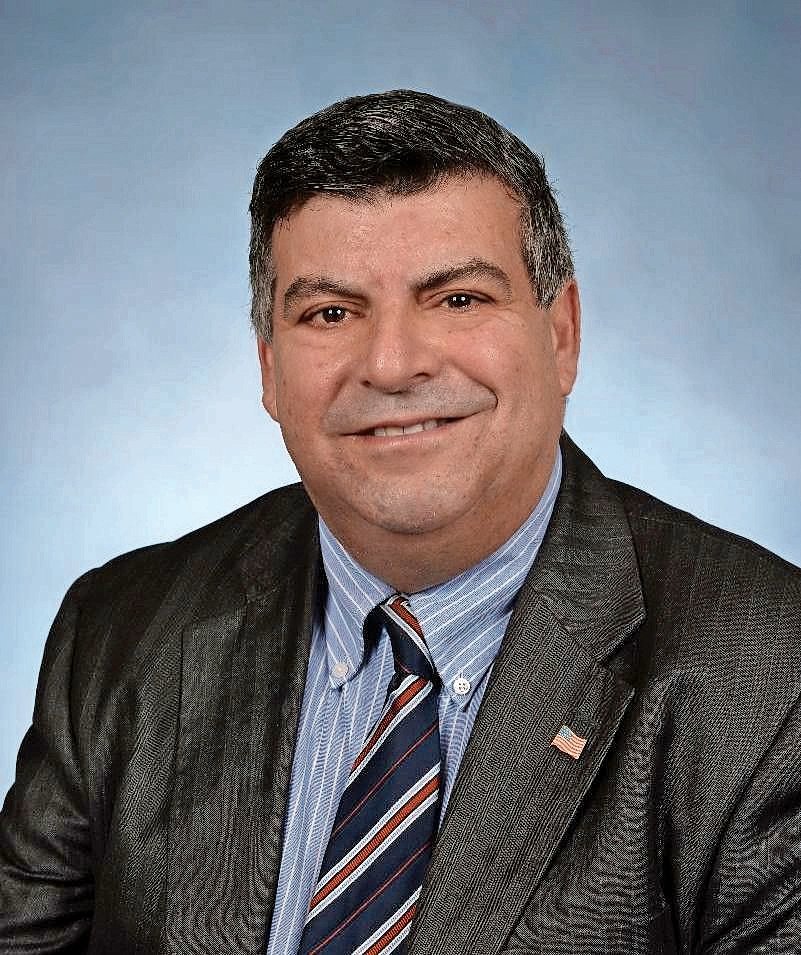Villages get AIM funding back
Gov. Andrew Cuomo announced on Feb. 15 that he would use $60 million in revenue from sales taxes generated in out-of-state internet marketplaces to continue to fund the state’s Aid and Incentives to Municipalities program. The program provides funds for towns and villages, including East Rockaway and Lynbrook, to use in their general funds.
The announcement came a month after Cuomo presented his original state budget proposal, which would have cut AIM funding to towns and villages that received less than 2 percent of their revenue from the aid in 2017. The Town of Hempstead would have lost about $3.8 million in revenue, the Village of Lynbrook would have seen a dip of about $230,000, and the Village of East Rockaway would have lost nearly $195,000.
To ensure that the cuts would not be included in the state’s final budget, Lynbrook Mayor Alan Beach and East Rockaway Mayor Bruno Romano sent letters to their state legislators, asking them to reject the proposal. Assemblywoman Judy Griffin, a Democrat from Rockville Centre, worked with other members of the Assembly to issue a joint statement asking the governor to restore AIM funding and increase aid to towns and villages.
“The original proposal only impacted localities receiving a relatively small amount of money, but I have been contacted by mayors and local officials who say in these tough times it would still be a challenge for them,” Cuomo said in a statement. “That is why we are revising the executive budget to use internet sales tax revenue to make these impacted localities whole.”
Under the proposal, counties would collect sales-tax revenue from out-of-state online retailers starting on June 1. The counties would then be directed to share that revenue with the towns and villages that lost AIM funding.
Cuomo said that having out-of-state internet marketplaces pay sales taxes would even the playing field for local brick-and-mortar retailers, which must collect sales taxes. He also said that eliminating the internet tax advantage for out-of-state retailers would generate $390 million annually for local governments. In addition, he said, eliminating the internet tax advantage for out-of-state retailers would generate $390 million annually for local governments.
Town of Hempstead Supervisor Laura Gillen, who last month instructed department heads to identify spending cuts to offset the potential loss of state aid, said she was grateful that Cuomo restored the AIM funding.
“I want to thank Governor Cuomo for working with the town and restoring $3.8 million dollars’ worth of vital funding for essential services that our residents rely on,” Gillen said. “Hempstead Town would have taken the biggest hit out of any other municipality in the state. Therefore, restoration of this funding has been my top priority.”
Beach said, however, that he did not favor Cuomo’s proposal to use sales-tax revenue to fund the AIM program. “Although we are pleased that the governor has started to consider our comments,” he said, “we feel very strongly that the state should restore the state aid in full and distribute the new internet sales tax back to the localities where it originated from.”
Romano declined to comment.
Other town and village officials from across the state also said that the AIM program should not be funded by another tax on residents. Representatives of the New York Association of Towns and the New York Conference of Mayors said that Cuomo’s sales tax proposal just “repackages” the money, and Gerry Geist, executive director of the AOT, said that AIM should be funded independently and should not be linked to the internet sales tax revenue.
Peter Baynes, executive director of NYCOM, also said, “The restoration of the $60 million is robbing one taxpayer to pay another.”
“Rather than playing this shell game, New York state should be fulfilling its obligation to increase its investment in municipal aid and the property-tax relief it will generate,” Baynes said. “Imposing a new mandate on counties to make up for the state’s cut to villages and towns will only further harm New York’s already overburdened property taxpayers.”
Geist shared a similar distaste for the restoration and added that counties would be required to make up for a town’s lost AIM money with sales tax revenue. “This proposal does nothing to reduce property taxes, and takes money out of one hand to pay the other,” Geist said.
At the state level, Griffin said that she was against diverting funds from one source to pay for the AIM funding and said that she would work with her colleagues in the State Legislature “to find a more pragmatic and viable solution to this complex issue.” Sen. Todd Kaminsky, a Democrat from Long Beach, said that he and other state senators would “be working diligently” to develop a budget that contains adequate funding for municipalities without increasing taxes on residents.

 51.0°,
Mostly Cloudy
51.0°,
Mostly Cloudy 







